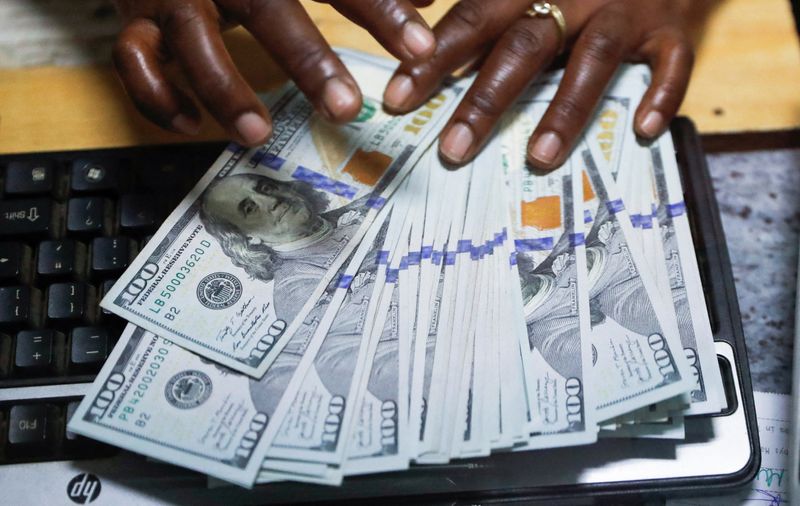Investing.com -- A strong dollar has often been described as a "wrecking ball" for the global economy, driving up the cost of worldwide trade, tightening financial conditions, and inflation for countries, particularly those in emerging markets, but while king dollar is expected to continue its surging run, Capital Economics believes worries about the impact of the "wrecking ball" impact are overblown.
"The upshot is that while an appreciating dollar is a headwind for the world economy in the short run, it is usually not as harmful as often suggested," economists at Capital Economics said in a recent note.
The U.S. dollar has appreciated by 7% in trade-weighted terms compared to a year ago, reaching a fresh record high. In real terms, the dollar is the strongest since the Plaza Accord in 1985.
As most traded goods are priced in dominant currencies, chiefly the U.S. dollar, as the greenback strengthens, trade becomes more expensive globally.
While a "strong dollar poses a headwind to trade through this 'invoice channel', the share of trade that is negatively affected tends to be overstated," the economists added.
Services trade, which accounts for a fifth of overall world trade, is much less affected by dollar strength. While falls in commodity prices, can mitigate increases in import prices, potentially dampening inflationary impacts.
Financial conditions tightening from dollar strength, meanwhile, pose a smaller threat to emerging markets than in the past, the economists said, with currency risks at their lowest levels in decades.
